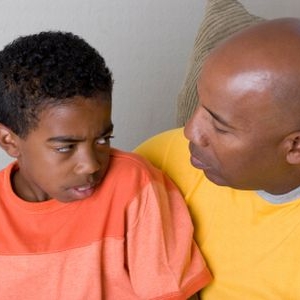
The monstrous tornado that devastated Moore, Oklahoma, on Monday, killing dozens of adults and children, is a stunning example of violent weather that can affect a child's mental well-being. But even thunderstorms with lightning and strong winds can be emotionally upsetting, too, health experts note.
Some anxiety in the face of violent weather is normal. But some children develop storm phobias that interfere with their everyday lives, said Stephen Whiteside, a psychologist and anxiety prevention expert at the Mayo Clinic Children's Center in Rochester, Minn.
Worries about weather can make it hard for kids to concentrate in school, Whiteside said. Some will routinely check weather forecasts or become afraid to leave the house.
It's essential that parents not tell their anxious children they are being silly or otherwise dismiss their fears, he said.
Media coverage makes it worse
"The important thing for parents is to remember to be warm and supportive of your child," Whiteside said in a Mayo news release. "If you get anxious or frustrated or upset, that's just going to make things worse. Try to stay calm and help your child gradually face their fears in a step-by-step fashion."
Mental health experts typically advise parents to shield their children from media coverage of natural disasters and to be available to those who need reassurance or comfort.
When talking to children about their weather-related worries, Whiteside recommends the following:
- Be calm and supportive. Tell children that things like thunder won't hurt them. Explain that storms are a normal part of nature.
- Talk about storms matter-of-factly. Some kids may seem afraid of storms, but are really interested in learning more about them.
- The same type of exposure-based behavioral therapy used to treat many worries and phobias works well with weather-related phobias. It boils down to helping children face their fears by gradually helping them learn they can handle a fear - and other uncertainties of life - on their own.
- If the anxiety doesn't diminish, or begins to create greater stress for the child or the parent, get the assistance of a mental health professional.
About 8% of teens ages 13 to 18 have an anxiety disorder, with symptoms commonly emerging around age six, according to the US National Institute of Mental Health.
In Moore, search and rescue operations continued with thunderstorms and heavy rainfall expected. Forecasters were predicting isolated tornadoes, golf-ball-sized hail and thunderstorms for other parts of Oklahoma, Texas, Arkansas and Louisiana.
More information
The U.S. National Library of Medicine has more about childhood stress.




 Publications
Publications
 Partners
Partners










